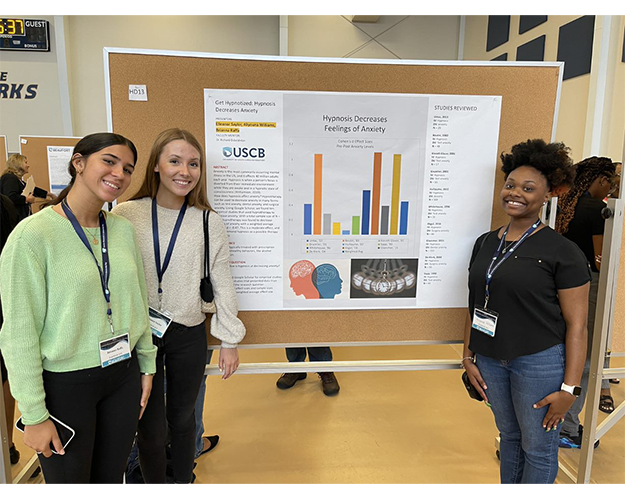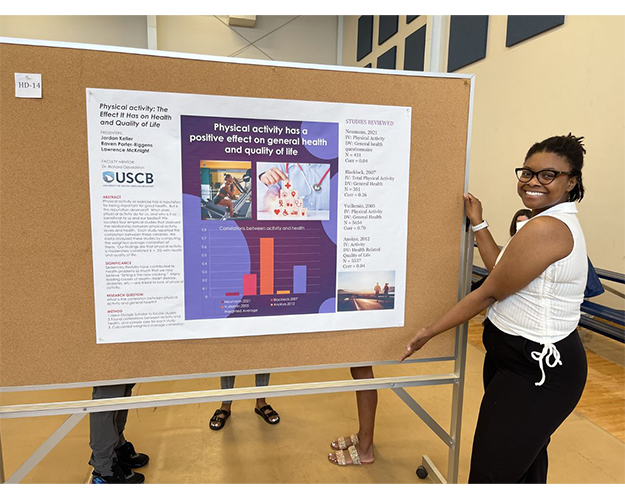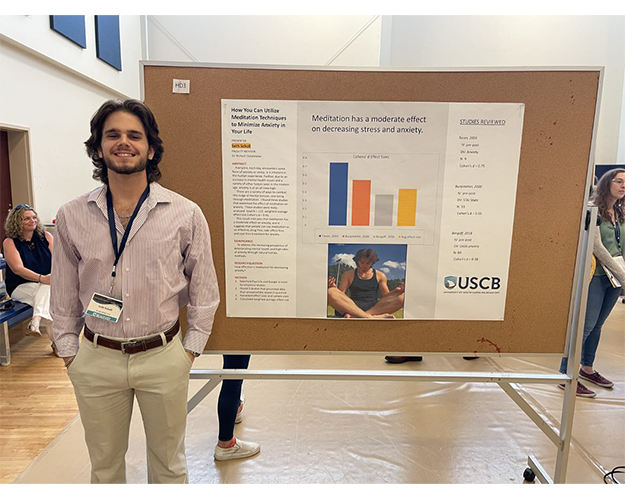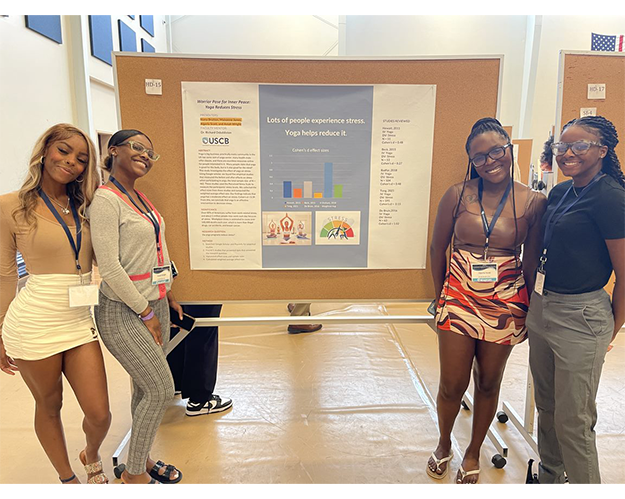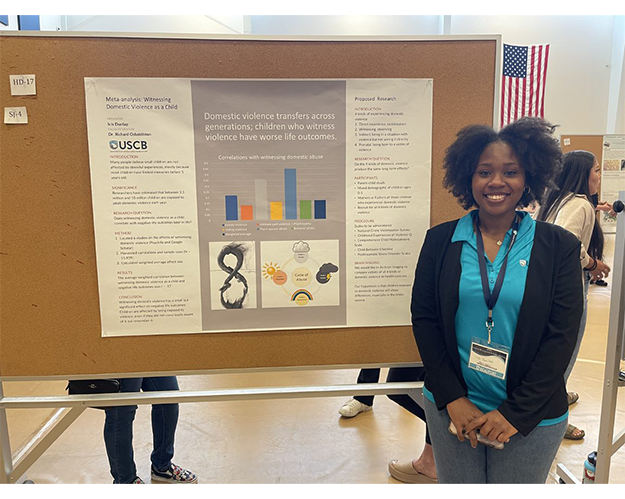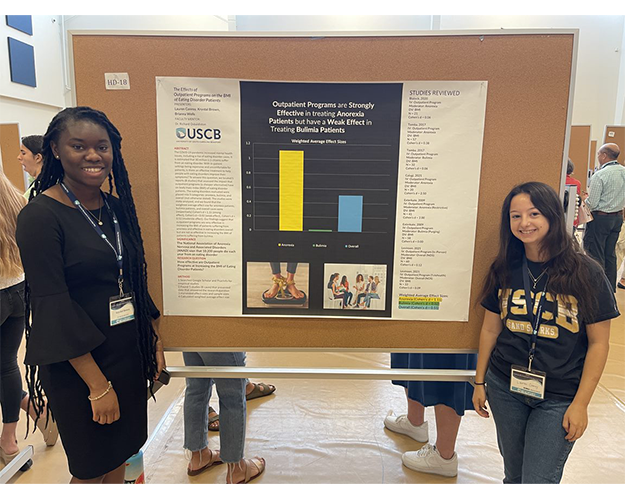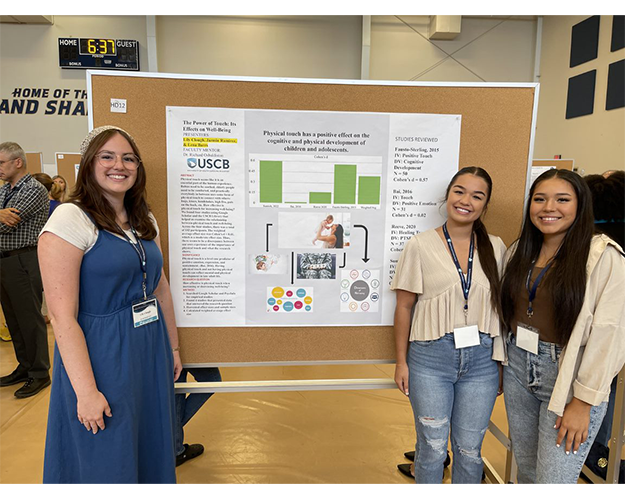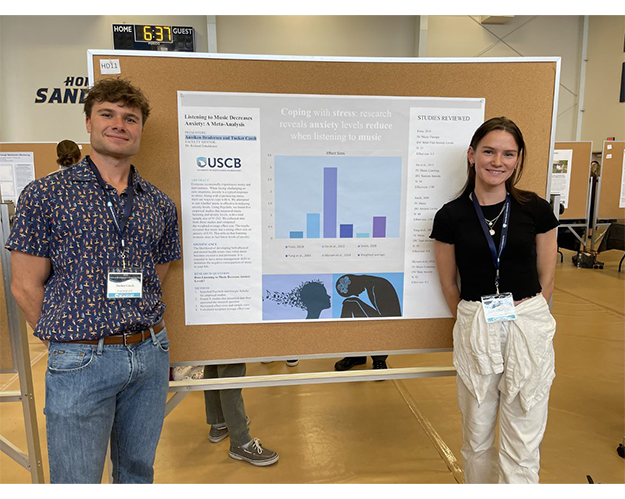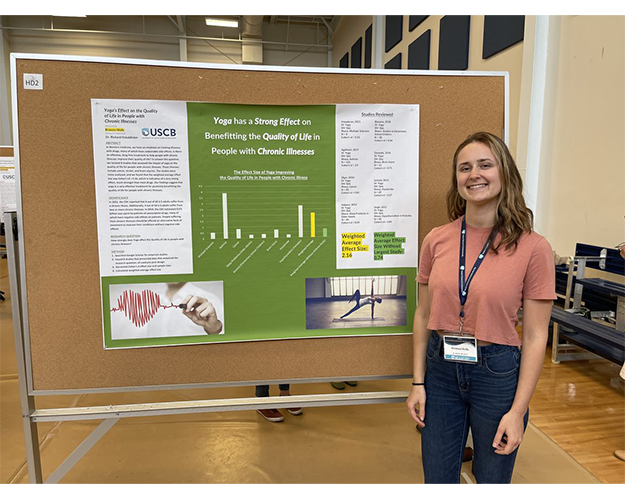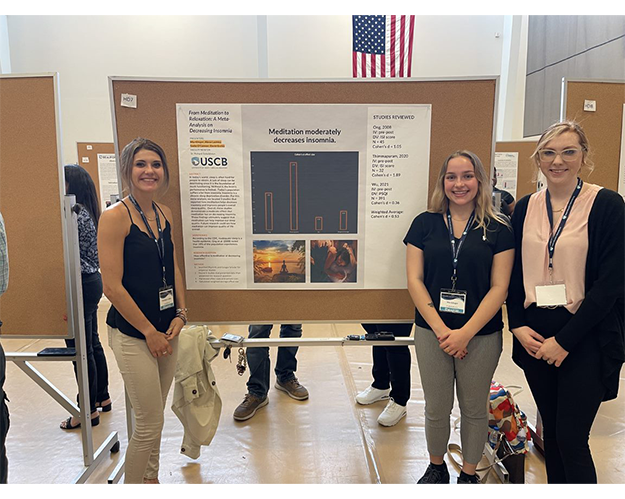Psychology Research Labs
USCB LEAD Psychology Laboratory
 The USCB Psychology Lab for Early Affective Development (LEAD) offers students the
opportunity to design their own research projects, engage with the community to collect
data, and present their findings. Past research has included analyzing survey data
from preschool teachers about how COVID-19 impacted their classrooms and students'
social skills, conducting meta-analyses on child development topics, and presenting
at local and regional conferences. Currently, students are focused on secondary data
analyses exploring variables like social media usage as well as risk factors in child
development. The lab has also recently expanded to include research on integrating
AI tools into college classrooms, thanks to grant funding. The LEAD Psychology Lab
is directed by Dr. Carmen Brown Farrell, an Assistant Professor of Psychology at USCB.
The USCB Psychology Lab for Early Affective Development (LEAD) offers students the
opportunity to design their own research projects, engage with the community to collect
data, and present their findings. Past research has included analyzing survey data
from preschool teachers about how COVID-19 impacted their classrooms and students'
social skills, conducting meta-analyses on child development topics, and presenting
at local and regional conferences. Currently, students are focused on secondary data
analyses exploring variables like social media usage as well as risk factors in child
development. The lab has also recently expanded to include research on integrating
AI tools into college classrooms, thanks to grant funding. The LEAD Psychology Lab
is directed by Dr. Carmen Brown Farrell, an Assistant Professor of Psychology at USCB.
USCB Social & Cultural Psychology Laboratory
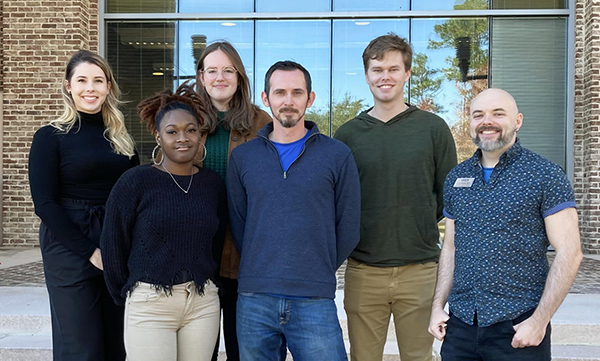
The Social & Cultural Lab's Fall 2022 team: Students Dani Agcaoili, Traliya Mitchell, Lily Clough, Jack Weaverling, Hogan Drane (not pictured: Graceyn Yonce & Mike Francois) with Dr. Kyle Messick.
The USCB Social & Cultural Psychology Laboratory provides students with opportunities to get firsthand experience conducting research that can lead to opportunities that include publications and conference presentations. Students learn important skills including open science practices, developing theory, writing a literature review, conducting data analyses, formatting a manuscript for publication and networking with colleagues globally. The lab is staffed by student volunteers that work alongside social psychologist Dr. Kyle J. Messick on projects within the domains of psychology of religion, psychology of music and broader studies exploring social and cultural psychology. Currently, the lab is exploring the relationship between collecting behaviors and compulsive buying within the context of the COVID-19 pandemic. Upcoming output from the lab includes new cognitive and evolutionary approaches to atheism, the experience of dis/ability in the context of metal music culture, the psychological functions of the nontheistic sacred, the relationship between misogynistic music and misogynistic beliefs and a critical evaluation of Milgram’s obedience studies using a new paradigm.
